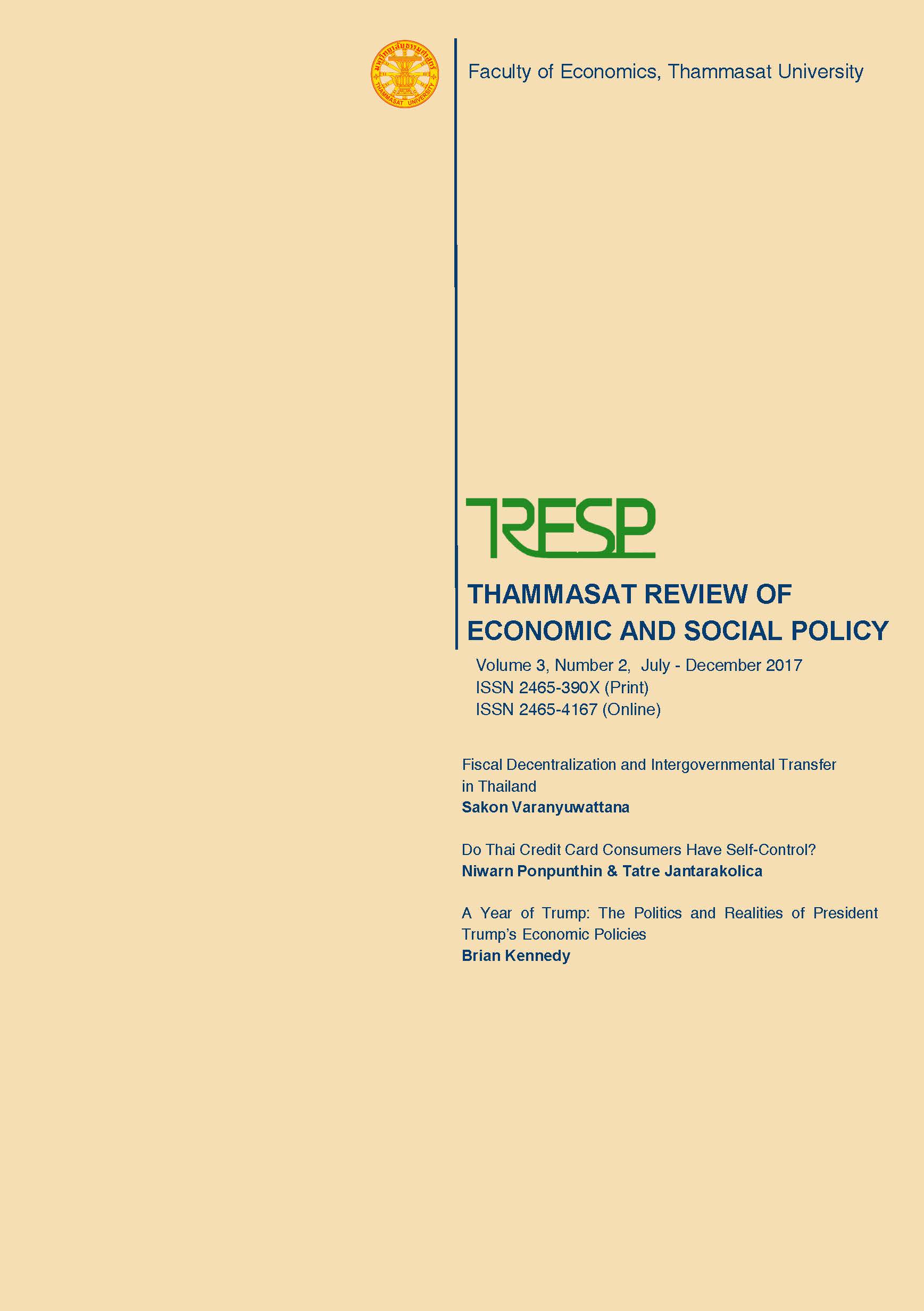Fiscal Decentralization and Intergovernmental Transfer in Thailand
DOI:
https://doi.org/10.14456/tresp.2017.4Keywords:
Thailand, decentralization, public economics, fiscal policie, local governmentAbstract
Decentralization in Thailand occurred hastily and remains relatively untested after the promulgation of the 1997 Constitution. The decentralization act of 1999 mandated the government to transfer revenue to LAOs, reshaping local fiscal structures. The government has successfully provided revenue to local governments as required by providing large share of intergovernmental revenue transfer in form of tax sharing and grants transfer. A consequence of this, however, is that intergovernmental transfer of revenue has led to lower local fiscal accountability. The tasks that need consideration for continuing fiscal decentralizing in Thailand are: clarifying expenditure assignment for each level of LAOs since there is a two-tier system of LAOs administration; encouraging efficient revenue generation in the existing revenue structure including designing proper intergovernmental revenue transfer formula which would reflect benefit and cost of local public service to enhance accountability of local people toward each level of LAOs. Furthermore, decentralization in Thailand needs to promote participation from local people to understand role of LAOs under the new paradigm of public service delivery where the people must take a proactive role in decision making that concerns their welfare and local affairs.
References
The Action Plan and Procedure for Decentralization of 2000.
Bahl, Roy,(January 1999) “Implementation Rules for Fiscal Decentralization,” International Studies ProgramSchool of Policy Studies, Georgia State UniversityAtlanta, Georgia.
Bird, Richard and Francois Vaillencourt, editors (1998),Fiscal Decentralization in Developing Countries. Cambridge, University Press: New York and London.
Constitution of Kingdom of Thailand (1997).
Constitution of Kingdom of Thailand (2007).
Decentralization Act of 1999.
Lerman, R.I., and S. Yitzhaki. (1985), “Income Inequality Effects by Income Source: A New Appraoch and Applications to the United States,” Review of Economics and Statistics, 67: 151-156
National Decentralization Committee (NDC) (2013), “Allocation of LAOs Organization Revenue 2009 – 2013,” Prime Minister Office.
World Bank, (February 2012), Central-Local Government Relations in Thailand, Discussion paper No. 3, Thailand: Public Finance Management Report.



